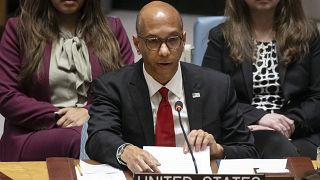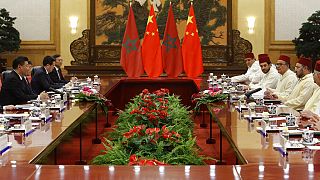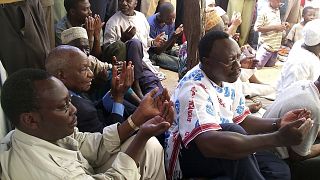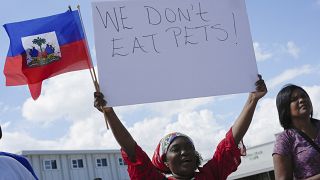Morocco
Unemployment is high in these remote mountains in Morocco’s Al Haouz province.
Young farmers are migrating to cities and climate change is raising concerns about declining harvests.
To make matters worse, agricultural techniques handed down from generation to generation remain obsolete. But now, agricultural cooperatives have been formed with support from the International Fund for Agricultural Development (IFAD) and the Moroccan government.
“In the past, our parents used to handle trees in an ineffective way, randomly. They planted apple trees, but they earned nothing”, Abderrahman Aissaouin, President of the Touffaha cooperative said.
For many young people in Al Haouz, cooperatives have improved their production techniques. About 33,000 smallholder farmers and herders are involved in the project.
“Before joining this cooperative, I had left the village. I was working in the city. But when the cooperative was being formed, I got a call from my friends, thank Allah. Since 2014 I have been back in my village”, said Brahim Laaouina, a member of the Agadir Igoudar cooperative.
The programme aims to increase participation of women and young people and also engage them in value addition of products.
Abdellah Mendili is the Provincial Director of Agriculture based in Marrakech.
“If we could replicate this project, in my opinion, young people could find themselves in the fabric of the economy and they would breathe new life and boost agriculture in the mountain areas and through them, the mountain areas will become a source of wealth creation instead of an area of poverty and unemployment”, he said.
The country’s mountainous regions, the steppes and arid south are among the poorest parts in Morocco.
Reuters





![Africa's hight cost of climate change [Business Africa]](https://static.euronews.com/articles/stories/08/77/73/84/320x180_cmsv2_065e40c7-90d8-5143-b8da-c4885db015dc-8777384.jpg)







01:26
Zimbabwe’s Climate-Smart Agriculture: Empowering Farmers through Resilience and Innovation
02:20
Morocco's museum of modern art celebrates 10-year anniversary
00:55
Morocco's population grows in a decade to reach 36.8 million
01:59
Botswana’s young farmers hope new government will boost agriculture sector
02:19
Morocco exhibition shows treasures of ancient port city of Chellah
11:07
Benin: Tapping the potential of luxury tourism [Business Africa]